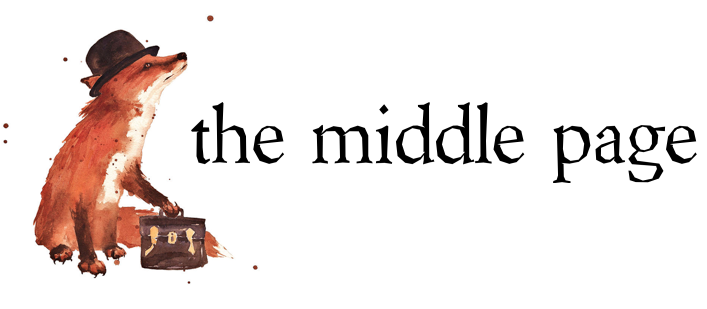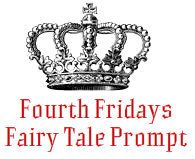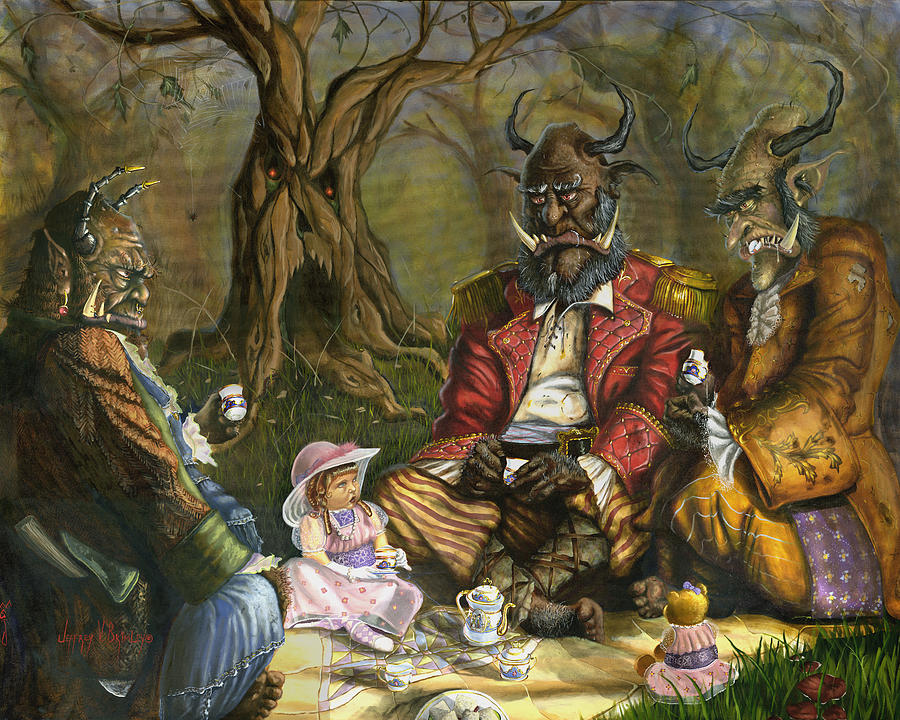As an aspiring Tolkien scholar there is admittedly little that doesn't remind me of
The Hobbit or
The Lord of the Rings. I always
try to keep my Tolkien-centered mind in check while I read other fantasy novels because I know that while there are many novelists that purposefully try to imitate Tolkien, there are many more authors whose works echo Tolkien's rather accidentally. Sometimes there is a lot significance in the connections between such novels. Sometimes there isn't. And sometimes they're just fun to talk about.
Even though I don't think there's
too much significance to be found in their connection, I still want to write about
Ella Enchanted and
The Hobbit.
Ella Enchanted is wonderfully original (a hard thing to accomplish as a fairy tale retelling), and since it never really tries to be
The Hobbit, I find the couple of things that remind me of Tolkien in the book all the more interesting. Just in case anyone's unfamiliar with the plot of
Ella Enchanted, here's a short synopsis from the book:
At her birth, Ella of Frell was given a foolish fairy's gift—the "gift" of obedience. Ella must obey any order given to her, whether it's hopping on one foot for a day or chopping off her own head!But strong-willed Ella does not tamely accept her fate. She goes on a quest, encountering ogres, giants, wicked stepsisters, fairy godmothers, and handsome princes, determined to break the curse—and live happily ever after.
The really great thing about Ella is that she's strong-willed
and fiercely intelligent. Like Tolkien himself, Ella is a skilled and inspired linguist and language plays an important role in the novel. In the beginning of the book Ella tells us she first picked up languages from parrots: "The birds spoke all the languages of the earth: human foreign tongues and the exotic tongues of Gnomic, Elfian, Ogrese, and Abdegi (the language of the giants). I loved to imitate them, even though I didn't know what they were saying" (42). Moments later we find out how important the ability to know or imitate language is when Ella comforts and saves a gnome toddler from an ogre by speaking the gnomish greeting. As the novel continues it turns out that Ella not only has a "knack for languages" (64), but a passion for them. While at finishing school, she finds almost all of the classes she takes useless and tedious. But the one thing she finds comfort in is learning the Ayorthaian language from her friend Areida. Language strengthens Ella and Areida's friendship, inspires Ella to willingly learn something on her own, and even proves an important tool later on when Ella leaves finishing school and enters the wider world:
- Knowing Elfian helps reassure the elfin community that she can be trusted.
- Knowing Abdegi helps her find her father at the giant's wedding.
- Knowing Ayorthian saves her from having to answer Lucinda in her own language (and consequently saves her from possibly being turned into a squirrel).
And in the scene that reminds me most of
The Hobbit, language is more important than ever. Everyone remembers the second chapter of
The Hobbit called "Roast Mutton," where Bilbo and the dwarves find themselves surrounded by hungry trolls and are almost cooked and eaten:
"A nice pickle they were all in now: all neatly tied up in sacks, with three angry trolls (and two with burns and bashes to remember) sitting by them, arguing whether they should roast them slowly, or mince them fine and boil them, or just sit on them one by one and squash them into jelly"(39).
On her way to find Lucinda and fix her "gift" of obedience, Ella is put in a very similar situation. She wakes up to find she's been captured. Eight ogres surround her and immediately begin contemplating the best way to cook her: "How do you liked to be cooked? Bloody? Medium? Or done to a crisp?"(96).
Unlike the trolls in
The Hobbit, who speak a lower class, but understandable dialect, the ogres speak their own language. Luckily Ella "had studied sufficient Ogrese to understand almost everything" (96) they say. And she understands that they, just like the trolls of
The Hobbit, are quick to argue over how and when Ella will be cooked and who she'll be eaten by. In
The Hobbit this is solved when
Gandalf steps in silently and mimics the trolls own voice and dialect. He confuses the trolls and makes them argue amongst themselves until the sun rises up and turns them to stone:
"Who’s a-arguing?” said William, who thought it was Bert that had spoken.
“You are,” said Bert.
“You’re a liar,” said William; and so the argument began all over again (40).
In
Ella Enchanted it is Ella herself who mimics the ogres speech. She not only talks to them in their own language, but mimics their special ability to be "irresistibly persuasive" in their speech (43). We're told when an ogre speaks, "by the end of the second sentence, you were so won over that he could do whatever he wanted with you, drop you in a pot to cook, or, if he was in a hurry, eat you raw" (44). Like Gandalf, Ella uses the ogre's speech to confuse them long enough for her to save herself:
"You're not really hungry. You're full...How can you eat me? You're too full to eat-all of you are. Your bellies are as heavy as sacks of melons." ...SEEf let me go. I stepped away."You can sleep and have delicious dreams.."Sleep claimed them. They returned to their heap of the night, and grunting and snoring and groaning" (102).
Ella and Gandalf both mimic the speech and language of the captors to lull them into a false argument. They both confuse and beguile their enemies with their own voices until they come to safety and the trolls and ogres alike become still and silent.
While I was reading
Ella Enchanted I didn't know if Levine read or liked Tolkien, but I liked to imagine that these moments were written as a sort of tribute to him. That's simply how they struck me. As it turns out, in
another edition of
Ella Enchanted Levine writes an appendix titled 'Gnomic Spoken Here: The Languages of
Ella Enchanted' and states, "I made up the different languages because I liked the ones that J.R.R. Tolkien invented in his
Lord of the Rings trilogy" (10). She even follows this statement with a small glossary of certain words and phrases of her made up languages. I'm glad to know I wasn't imagining the Tolkien allusions. But, while the influence is undeniable,
Ella Enchanted is truly a novel that stands on its own, far away from even the Cinderella tale it is based on and farther still from
The Hobbit.









